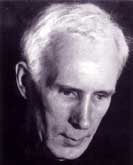On Deliberate Barbarism

We need myths. They're irrational signposts in our strange spiritual land: they guide us even when we don't know we're being guided. We don't even necessarily understand them, but only a shallow rationalism (a "defecated rationality" is how Russell Kirk might have referred to it) rejects them.
From de Lubac's discussion on Nietzsche:
Nietzsche . . . noted that 'it is impossible to found a civilization on knowledge.' And immediately after a period in which man has intensively and exclusively cultivated his own conscious powers, and sought to rule the world solely by the laws of reason, there is bound to be a re-emergency, in full force, of those myths 'which tend to lift the creature out of his solitude and reintegrate him in the general scheme of things.' In any case the profoundly disturbing question arises which Nietzsche was not the only one to raise: as soon as man ceases to be in contact with great mystical or religious forces, does he not inevitably come under the yoke of a harsher and blinder force, which leads him to perdition? It is what Vico called the age of "deliberate barbarism," and it is the age in which we live."
